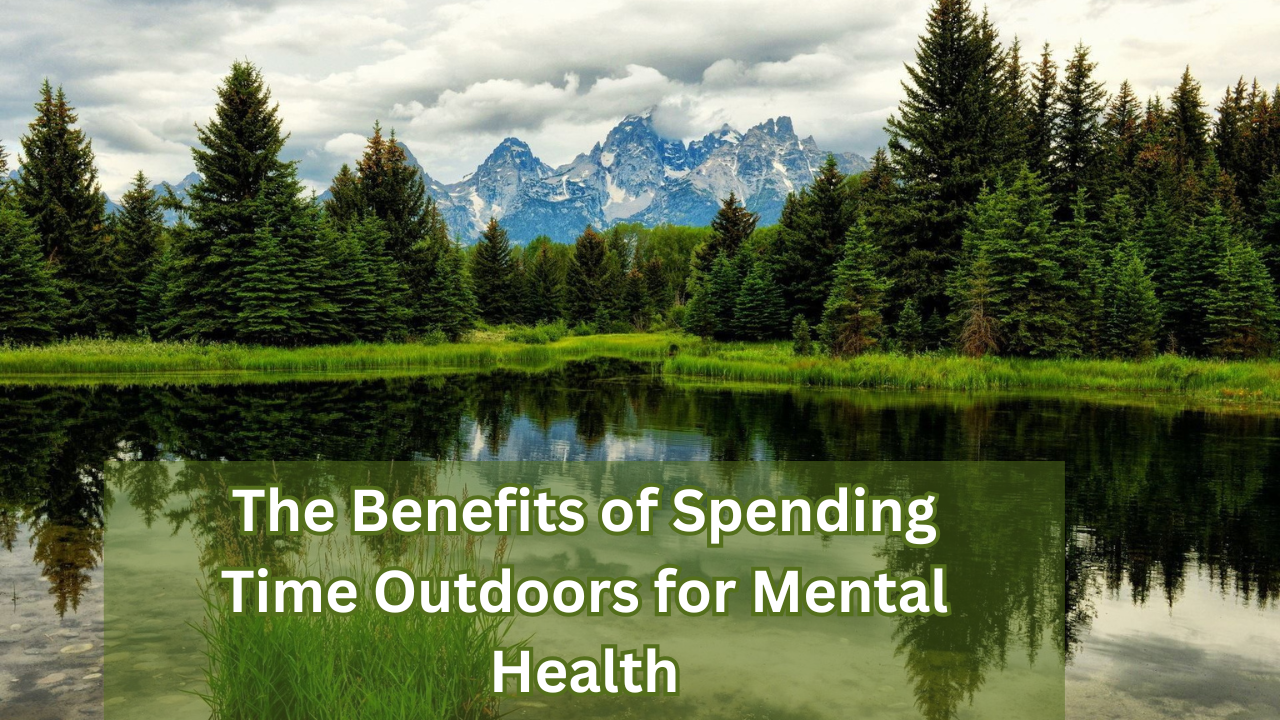In our busy, tech-focused world, we often stay indoors, glued to screens and surrounded by daily hustle and bustle. This disconnects us from nature, which isn’t good for our mental health. Spending time outside can make us feel much better. Fresh air, sunlight, and green spaces help to reduce stress, lift our mood, and improve overall well-being. Being in nature calms our mind and body. It’s important to take time to step outside and enjoy the natural world around us. This blog will explore how spending time outdoors can boost our mental health and make us happier.
Reducing Stress:
One big benefit of being outside is that it helps reduce stress. Nature is very calming for our minds and bodies. Listening to birds, rustling leaves, and flowing water can help us feel relaxed. Studies show that spending time in nature can lower cortisol, a stress hormone. Even a short walk in a park or a few minutes by a lake can help lower anxiety and make us feel peaceful. Nature’s soothing sounds and sights give our minds a break from daily worries, helping us feel calm and relaxed.
Improving Mood:
Spending time outside can make us feel happier. Natural light and fresh air boost our mood. Sunlight helps our bodies make serotonin, which makes us feel good and happy. This is especially helpful for people with seasonal affective disorder (SAD), a type of depression that happens in winter when there is less sunlight. Nature also gives us a break from our regular routines. It offers new and interesting experiences that lift our spirits. Whether it’s a sunny day or just being outside, nature can improve our mood and make us feel better.
Enhancing Cognitive Function:
Spending time outdoors can improve how we think. Studies show that being in nature helps our attention span and focus. Natural settings give our brains a break and help them recover from being tired. Unlike busy cities, which have lots of noise and distractions, nature is calm and peaceful. This allows our brains to rest and recharge, making it easier for us to concentrate and do tasks that need thinking. When we spend time in nature, our cognitive function improves, and we can focus better on our work or studies. Simple activities like walking in the park or sitting by a river can have a big impact on our ability to concentrate and think clearly. Nature’s calming environment provides a much-needed break from the constant stimuli of urban life, helping our minds feel refreshed and ready to take on new challenges.
Encouraging Physical Activity:
Being outside helps us stay active, which is good for our mental health. Activities like hiking, cycling, gardening, or walking release endorphins, also known as “feel-good” hormones. These hormones act as natural painkillers and make us feel happier. Regular physical activity can reduce symptoms of depression and anxiety, help us sleep better, and improve overall mental health. The mix of exercise and fresh air works wonders for our well-being. It’s a simple way to feel better both physically and mentally. So, spending time outdoors and being active can greatly boost our mood and health.
Fostering Social Connections:
Nature helps us make friends, which is very important for our mental health. When we do outdoor activities like hiking, gardening, or just talking to people in the park, we can connect with others. These interactions make us feel less lonely and more supported. They help us feel like we belong and give us emotional comfort. Spending time outside is a great way to build and keep strong friendships, which is good for our well-being. Being in nature not only connects us to the environment but also other people, making us feel happier and healthier.
Promoting Mindfulness:
Moreover, spending time in nature can enhance our sense of mindfulness and presence. Nature encourages us to slow down, observe, and appreciate the beauty around us. Practicing mindfulness in natural settings can help us become more aware of our thoughts and feelings, reduce rumination, and promote a sense of calm and clarity. Mindfulness meditation, which involves paying attention to the present moment without judgment, can be particularly effective when practiced outdoors. The natural environment provides a soothing backdrop that enhances the mindfulness experience.
Inspiring Awe and Wonder:
Connecting with nature can also inspire a sense of awe and wonder. The vastness and beauty of natural landscapes, from majestic mountains to serene beaches, can evoke feelings of awe that transcend our daily concerns. This sense of awe can shift our perspective, making our problems seem smaller and more manageable. It can also foster a deeper appreciation for the world around us and enhance our overall sense of well-being.
Incorporating Outdoor Time into Your Routine:
Incorporating outdoor time into our daily routine doesn’t have to be complicated or time-consuming. Even small doses of nature can have a positive impact on our mental health. Here are some simple ways to spend more time outdoors: Take a walk during your lunch break, have a picnic in a local park, go for a bike ride, practice yoga in your backyard, or simply sit outside and enjoy the fresh air. The key is to make a conscious effort to step outside and connect with nature regularly.
Conclusion:
Spending time outdoors offers a myriad of benefits for mental health. From reducing stress and improving mood to enhancing cognitive function and fostering social connections, nature has a powerful and positive impact on our well-being. In our busy and technology-driven lives, it’s essential to prioritize time in natural environments to nurture our mental health. Whether it’s a leisurely walk in the park or an adventurous hike in the mountains, immersing ourselves in nature can rejuvenate our minds, lift our spirits, and promote a sense of peace and happiness. So, the next time you’re feeling overwhelmed or stressed, consider stepping outside and letting nature work its magic.
